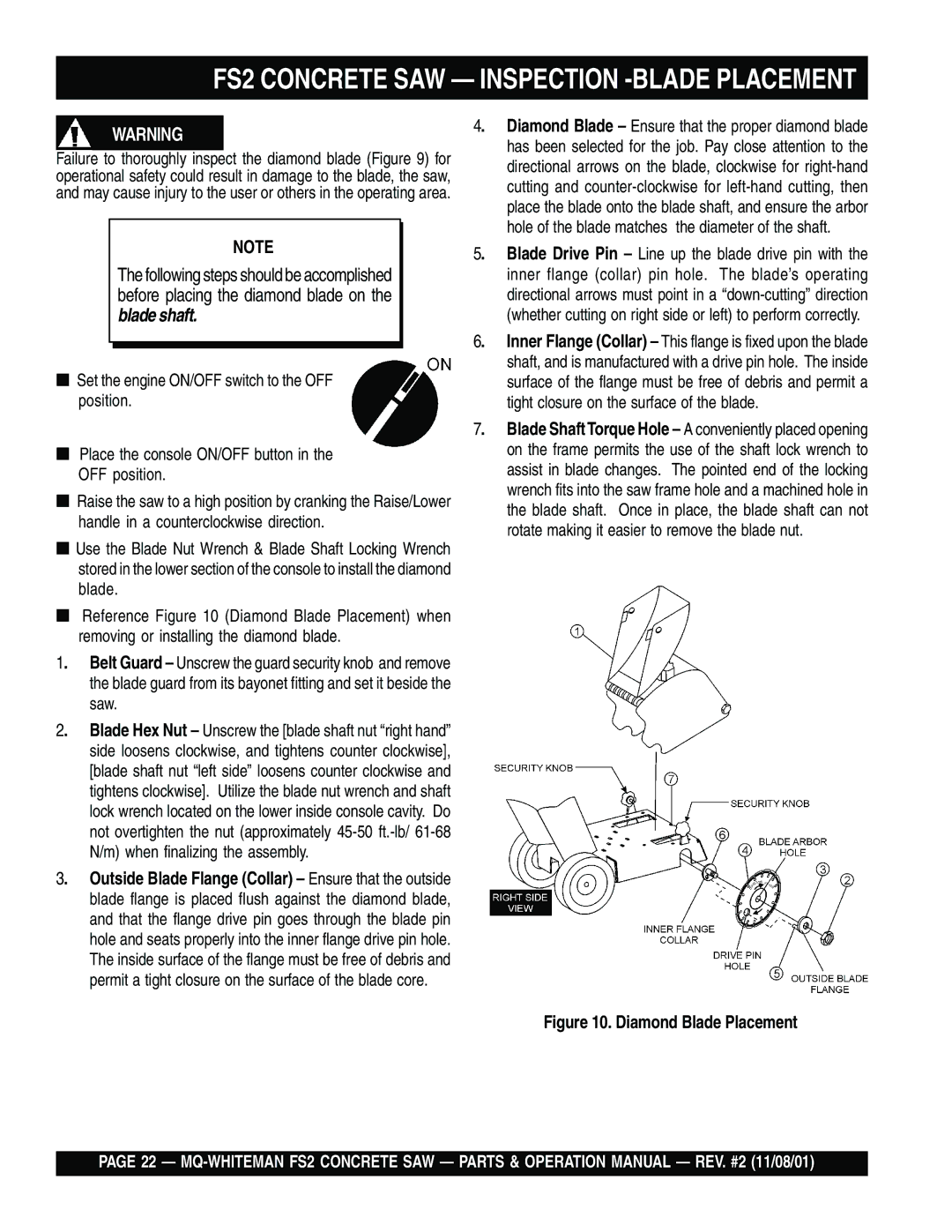
FS2 CONCRETE SAW — INSPECTION -BLADE PLACEMENT
WARNING
Failure to thoroughly inspect the diamond blade (Figure 9) for operational safety could result in damage to the blade, the saw, and may cause injury to the user or others in the operating area.
NOTE
The following steps should be accomplished before placing the diamond blade on the
blade shaft.
■Set the engine ON/OFF switch to the OFF position.
■Place the console ON/OFF button in the OFF position.
■Raise the saw to a high position by cranking the Raise/Lower handle in a counterclockwise direction.
■Use the Blade Nut Wrench & Blade Shaft Locking Wrench stored in the lower section of the console to install the diamond blade.
■Reference Figure 10 (Diamond Blade Placement) when removing or installing the diamond blade.
1. | Belt Guard – Unscrew the guard security knob and remove |
| the blade guard from its bayonet fitting and set it beside the |
| saw. |
2. | Blade Hex Nut – Unscrew the [blade shaft nut “right hand” |
| side loosens clockwise, and tightens counter clockwise], |
| [blade shaft nut “left side” loosens counter clockwise and |
| tightens clockwise]. Utilize the blade nut wrench and shaft |
| lock wrench located on the lower inside console cavity. Do |
| not overtighten the nut (approximately |
| N/m) when finalizing the assembly. |
3. | Outside Blade Flange (Collar) – Ensure that the outside |
| blade flange is placed flush against the diamond blade, |
and that the flange drive pin goes through the blade pin hole and seats properly into the inner flange drive pin hole. The inside surface of the flange must be free of debris and permit a tight closure on the surface of the blade core.
4. Diamond Blade – Ensure that the proper diamond blade has been selected for the job. Pay close attention to the directional arrows on the blade, clockwise for
5. Blade Drive Pin – Line up the blade drive pin with the inner flange (collar) pin hole. The blade’s operating directional arrows must point in a
| (whether cutting on right side or left) to perform correctly. |
6. | Inner Flange (Collar) – This flange is fixed upon the blade |
| shaft, and is manufactured with a drive pin hole. The inside |
| surface of the flange must be free of debris and permit a |
| tight closure on the surface of the blade. |
7. | Blade Shaft Torque Hole – A conveniently placed opening |
| on the frame permits the use of the shaft lock wrench to |
| assist in blade changes. The pointed end of the locking |
wrench fits into the saw frame hole and a machined hole in the blade shaft. Once in place, the blade shaft can not rotate making it easier to remove the blade nut.
Figure 10. Diamond Blade Placement
PAGE 22 —
